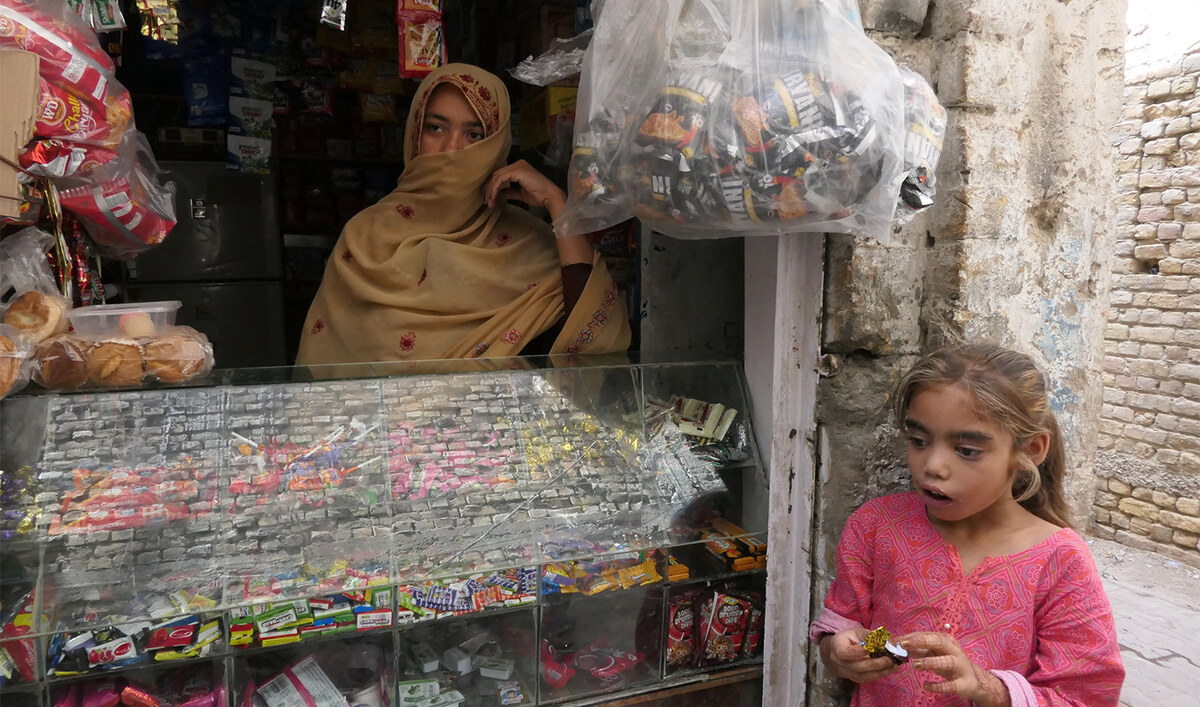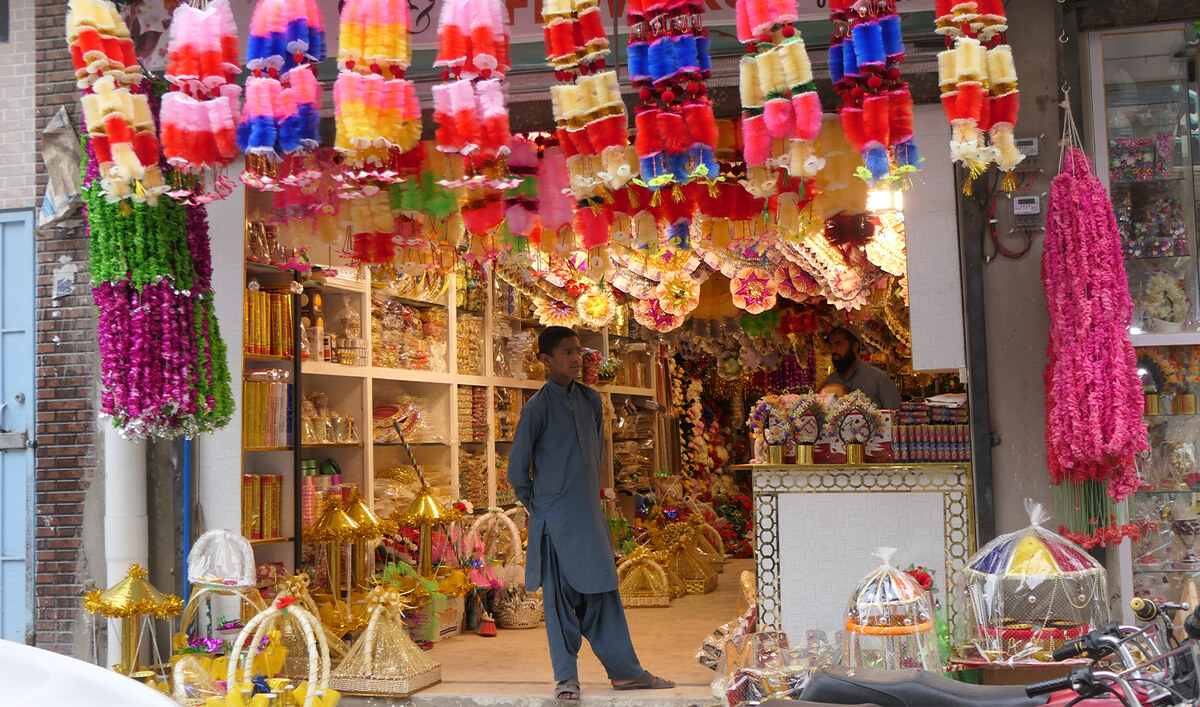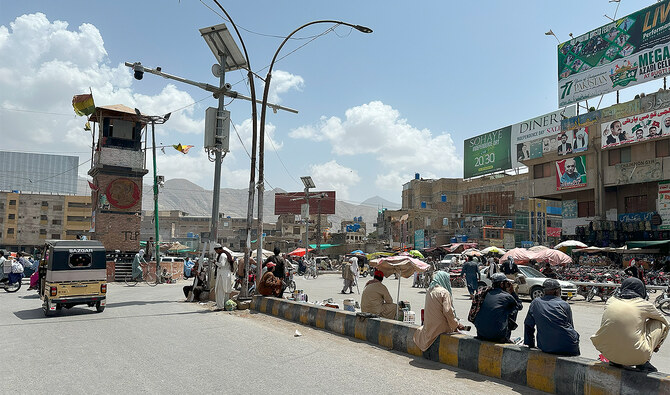QUETTA: Nadim Chand, a Hindu resident of Quetta’s Shanti Nagar slum neighborhood, used to make a decent living every year selling Independence Day paraphernalia such as flags, caps, badges, and horns in August.
But this year ahead of the anniversary of Pakistan’s independence on August 14, Chand says he is afraid for his life, with separatist militants stepping up attacks on security forces and those believed to be showing allegiance to them.
The militants aim to achieve independence for mountainous and mineral-rich Balochistan, Pakistan’s largest province by territory but the smallest in terms of population and the most impoverished, which has seen a decades-long insurgency against what separatists call the unfair exploitation of resources of the region. The state denies this.
In recent years, militants have attacked stalls and shops selling Independence Day paraphernalia, and many like Chand, 43, have been forced to opt out of the business.
On Tuesday, a day before Aug. 14, one person was killed and six injured in a hand grenade attack on a market in Quetta’s Liaquat Bazar, one of the city’s busiest streets, as people sold Independence Day merchandise.
“We were happy with this business because it was helping us make lucrative profits,” Chand, who works as a local contractor, told Arab News. “But for this year, the environment is not safe to be part of this business.”

The picture shows a famous market on Moti Ram Road in Quetta, Pakistan, on August 9, 2024. (AN Photo)
Chand said he bought merchandise worth Rs700,000 [$2,153.30] from Karachi and Lahore last year to sell in Quetta for profit. This year, however, he hasn’t made any purchases.
He recounted an incident from last year when a hand grenade was thrown at a woman from his Hindu community living in Shanti Nagar neighborhood, long known for the sale of Independence Day merchandise in the run-up to August 14.
“Her legs were injured, but she survived. This year, too, the situation is so bad that one even feels scared of putting flags up in their homes, let alone selling them,” Chand said.
Geeta Lakhmi Chanda’s family had similar fears. The 32-year-old now operates a small grocery store inside Shanti Nagar to support her husband who was injured in a bomb attack in August 2022 while selling Independence Day merchandise. He has since quit the business.
“My husband had set up a stall [in Quetta] that was targeted by a grenade blast,” Geeta told Arab News. “He was seriously injured and was bedridden for about two months. After that, we did not take part in this activity and advise others against it also because nothing is more important than one’s life.”

Geeta Lakhmi Chand stands inside her shop in Quetta, Pakistan, on August 10, 2024. (AN Photo)
In a statement seen by Arab News, the Baloch Raji Ajoi Sangar (BRAS), an alliance of Baloch separatist militant groups, has threatened to target Independence Day celebrations this year. The government says it will thwart any such attacks.
Meer Zia Ullah Langove, Balochistan’s provincial minister for home and tribal affairs, said the government had put in place fool-proof security for Independence Day celebrations.
“I urge the people of Pakistan to come out from their homes and celebrate Independence Day with courage of patriotism,” Langove told Arab News. “Because the government is responsible for protecting the lives of every citizen. “If anyone has been fearing any threat, inform the government, we would provide them full security.”
Quetta Deputy Commissioner Saad Bin Asad denied reports of low sales of Independence Day merchandise in Quetta.
“Many people in the city are selling the flags,” he told Arab News. “It is a celebration day for the whole nation. And similarly like Punjab, Sindh, Khyber Pakhtunkhwa and Balochistan [provinces], we will celebrate it in a similar manner, with similar zeal and enthusiasm as others are doing.”
But on Quetta’s Moti Ram Road, where the sight of shops selling flowers, vibrant wedding items, Pakistan’s national flags and other Independence Day merchandise is a regular feature come August each year, the flowers and wedding items are up for display this year but one can hardly find a Pakistan flag for sale.

A boy awaits customers at a shop on the famous Moti Ram Road in Quetta, Pakistan, on August 9, 2024. (AN photo)
Abdul Waqib, 34, who has run a shop for the last two decades on Moti Ram Road, said two people were injured on Aug. 10 last year when an explosion targeted a shop selling Independence Day merchandise there.
“For this season, the majority of shop owners haven’t brought Independence Day paraphernalia from other Pakistani cities due to fear of further attacks in this market,” Waqib told Arab News.
“We are not even seeing the public rush ahead of Independence Day. Definitely, we are happy that we live in an independent country, but given the current environment and circumstances, we do not want such incidents to happen again.”
Arab News also visited two other main areas for Independence Day sales, Meezan Chowk and Dukani Baba Chowk, but there was no Aug. 14-related activity there. Residents living on Airport Road and Nawa Killi also said they had not seen anyone selling flags.
Chand said people wanted to continue selling Independence Day merchandise, but only if the government guaranteed security.
“For now, all of us are sitting inside our homes, ” he said, “with nothing.”
















